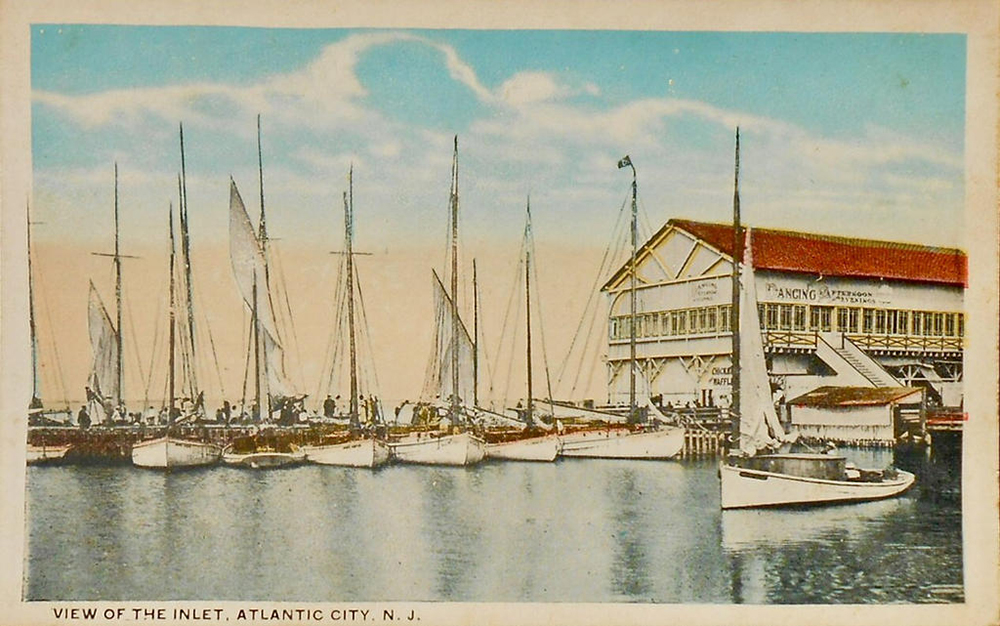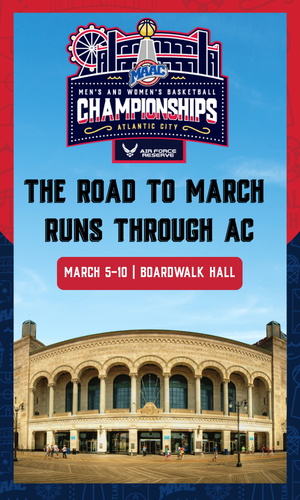By Bruce Klauber
The spectacular failure of the Revel Casino Hotel, and the equally spectacular success of Revel’s successor, Ocean Casino Resort, detailed recently in these pages, had ramifications that went well beyond casino business profitability.
The fact that Revel was built at all, and that it was built in Atlantic City’s Inlet section, has spearheaded long-overdue development in a once-troubled neighborhood that continues to positively change the face of Atlantic City.
Redeveloping Atlantic City’s Inlet section was something that city politicians talked about for years. By and large it was just talk. Ever since I can remember, and I’ve been coming to Atlantic City annually since 1956, that section of the city has been problematic. Sure, lots of folks went to the legendary Captain Starn’s and Hackney’s restaurants, but by and large the Inlet was viewed as a crime-ridden, dangerous place to stay away from.
It wasn’t always that way.
The Absecon Lighthouse was built by the Army Corps of Engineers in 1857. In 1878, the Biographical Atlas of the New Jersey Coast described the Inlet as “navigable for small-sized coasting vessels, and furnishes entrances and exits to the waters of Absecon and Reed’s Bays, small bodies of water in Atlantic County. No considerable stream except Absecon Creek flows into them.”
But the serious issues for the area, say the history books, began after World War II when the city began a slow decline. For whatever reason, crime, corruption and poverty hit the Inlet neighborhood particularly hard.
Here are some of the challenges the city faced at the Inlet through the years:
Though the two restaurants at the Inlet continued to be successful, the general situation was so dire that by the mid-1960s, the city declared the neighborhood “blighted” and proposed an Urban Renewal Project. The program, to put it mildly, was drastic. Quite simply, it was a mass demolition, followed by comprehensive redevelopment.

An illustration used for a vintage postcard shows a view of small boats docked along the Inlet.
“In all, 80 acres of the area were cleared, and it was estimated that 1,900 people were displaced by the plan,” read the Urban Renewal report.
The redevelopment plan also called for a new community of garden apartments, high rises, and hotels, with “everything in this new area geared toward the car.”
Sufficient funding didn’t come through, and only three new structures were built. There were no hotels or garden apartments, and most of the remainder of the land was vacant for decades.
The neighborhood got even worse through the 1970s. The legalization of casino gaming in 1976 was seen by some in the city as a godsend, especially as it applied to the Inlet section.
Would legalized gambling save the Inlet? Not for a while. The area was zoned for casinos and the speculators moved in. Land values went through the roof, from around $4.45 per square foot in 1976 to an astounding $39.15 in 1980. The market determined that the land was more valuable to investors without structures, so existing buildings began to come down, some suspiciously.
The Press of Atlantic City reported that, in the first four months of 1981, 117 fires broke out in the South Inlet section. The fire department considered 105 of them to be suspicious.
As the years passed, there was so much land zoned for casinos, and so much inactivity, that the values of the land began to drop. The South Inlet neighborhood was seemingly deserted, with the exception of some new home construction in 2000, funded by the Casino Reinvestment Redevelopment Authority.
The area sat that way until 2007, when construction began on the Revel Casino Hotel. But, given what we now know about the Revel saga, there wasn’t really a lot of great news at the Inlet until the astounding success of the Ocean Resort Casino, which opened in June of 2018. That’s when things finally began to change for the better.
Some of the positive developments have included:
The most visible addition to the Inlet’s landscape, something that would have been unheard of a couple of decades ago, took place in 2022 when North Beach Mini Golf and Bike Rentals opened on 120 Euclid Ave. In addition to the obvious features, North Beach Mini Golf presents special events during the season, and the venue is doing a healthy, private party business, with one of the main selling points being the ocean and skyline views, and the 5,000-square-foot deck.
The Inlet Community Development Corporation (ICDC) received a $950,000 donation from Ocean Casino Resort, by way of funding from the New Jersey Department of Community Affairs. The funds, which included a $50,000 donation from Tropicana for a total contribution of $1 million, will be used to support the ICDC’s revitalization project to improve the Inlet’s commercial businesses and their facades, offer housing rehabilitation grants, clean and safe initiatives, community programs, outreach and education, and career training. Other planned improvements include rehabbing homes at the Inlet and providing safer and more well-lit pedestrian/bike trails.
Redevelopment of Altman Park, the 1.56-acre park located at 101 Pacific Ave., has been one focalpoint. The park has been in disrepair for years. Much-needed improvements include expansion of the playground, repair of the basketball court and tennis court, installation of a dog park, and two new pickleball courts.
In March, a residential development project was announced with great fanfare. “Lighthouse Row,” said Mayor Marty Small at the press conference announcing the project, “is expected to completely transform the landscape of this neighborhood.”
The eight homes, just several feet away from the Absecon Lighthouse, will each have four or five bedrooms, three full bathrooms and two-car garages. Each unit will have views that will overlook the ocean, as well as the lighthouse and the city skyline. This is a fully solar powered residential development which will light up from sunset to sunrise each and every day.
Will shore residents ever see the day when the Atlantic City Inlet section is completely redeveloped residentially and commercially? Not very long ago, something like that wouldn’t have even been a possibility. Now it’s not only very possible, but all signs finally point to “probable.”
Bruce Klauber is the author of four books, an award-winning music journalist, concert and record producer and publicist, producer of the Warner Brothers and Hudson Music “Jazz Legends” film series, and performs both as a drummer and vocalist.











